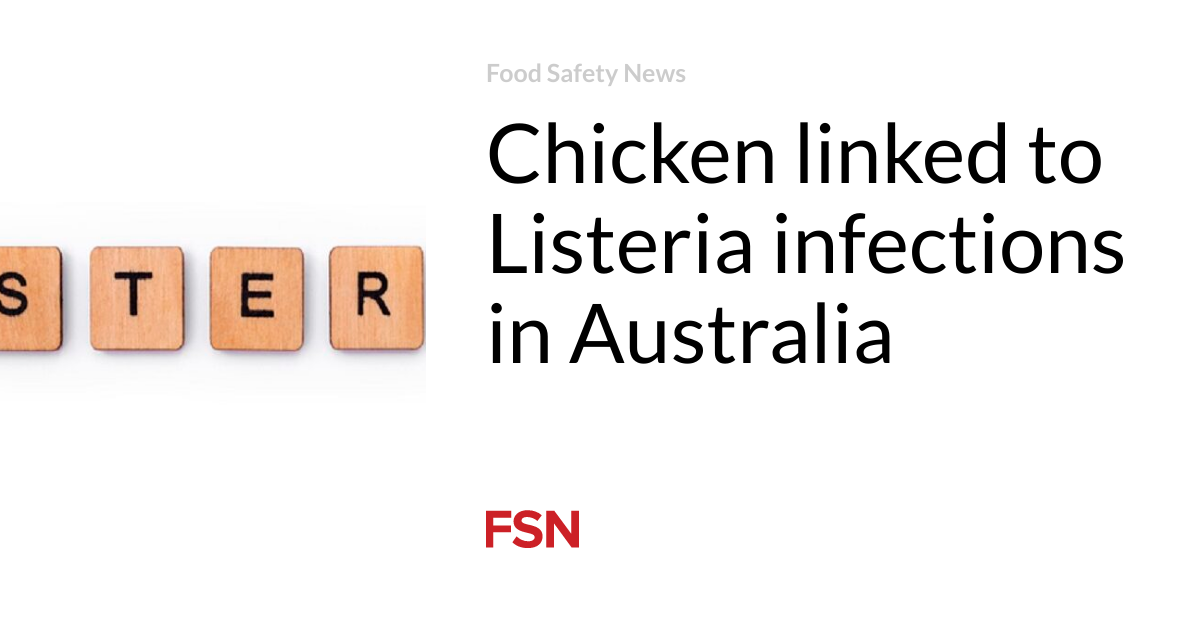Infection
Chicken linked to Listeria infections in Australia
Health authorities across Australia are investigating several Listeria infections.
Queensland, New South Wales, and Victoria officials are studying three different clusters.
A brand of shredded chicken was revealed as the probable source of one nationwide Listeria outbreak. The product is used mainly by restaurants, cafes, and hospitals.
Queensland Health officials identified M & J Chickens’ easy-serve breast fillet shredded chicken as the likely cause of five cases in Queensland, three in New South Wales and one in Victoria.
Dr. John Gerrard, Queensland’s chief health officer, said the type of Listeria found in chicken samples was the same as the strain isolated from patients in the state.
“This cluster includes four cases that were probably acquired at the Mater Hospital, with the fifth case possibly acquired at Redcliffe Hospital,” he said.
Gerrard said any business or individual possessing the implicated chicken should stop using it.
Queensland hospitals have also been told not to use the product. The chicken comes in a 2-kilogram pack size with batch code A5497 and is marked as chilled by Oct. 16, 2023.
Mater said it was working with Metro South Public Health Unit to investigate a “small number” of Listeria cases, which had been diagnosed early.
Testing by Metro South Public Health Unit and Brisbane City Council has not detected Listeria in Mater’s food services.
Two other outbreaks are being investigated
The source of infection in the other two clusters is still under investigation. So far this year, there have been eight listeriosis cases in Queensland, similar to the nine infections reported in the same period in 2019.
Gerrard said there had been no reported deaths.
“There is potential for further cases to be notified as part of this outbreak as it can take up to two months for symptoms to appear after eating food contaminated with Listeria,” he said.
“We are investigating several potential food sources, with tests currently underway. We expect more results to come through in the coming week.”
Earlier this month, public health officials in New South Wales warned of a rise in Listeria infections and in people being treated in hospitals for their illnesses.
NSW Health said it had recorded 25 listeriosis cases this year, more than the agency expects to see in a year.
At the end of May, 17 listeriosis patients had been reported. However, no common foods had been identified, and whole genome sequencing did not detect any clustering.
Typically, 20 to 30 cases of listeriosis are reported each year in NSW.
About Listeria infections
Food contaminated with Listeria monocytogenes may not look or smell spoiled but can still cause serious and sometimes life-threatening infections. Anyone who has developed symptoms of Listeria infection should seek medical treatment and tell their doctors about possible Listeria exposure.
Also, anyone who has eaten recalled products should monitor themselves for symptoms during the coming weeks because it can take up to 70 days after exposure to Listeria for symptoms of listeriosis to develop.
Symptoms of Listeria infection can include vomiting, nausea, persistent fever, muscle aches, severe headache, and neck stiffness. Specific laboratory tests are required to diagnose Listeria infections, which can mimic other illnesses.
Pregnant women, the elderly, young children, and cancer patients with weakened immune systems are particularly at risk of serious illnesses, life-threatening infections, and other complications. Although infected pregnant women may experience only mild, flu-like symptoms, their infections can lead to premature delivery, infection of the newborn, or even stillbirth.
(To sign up for a free subscription to Food Safety News, click here.)

